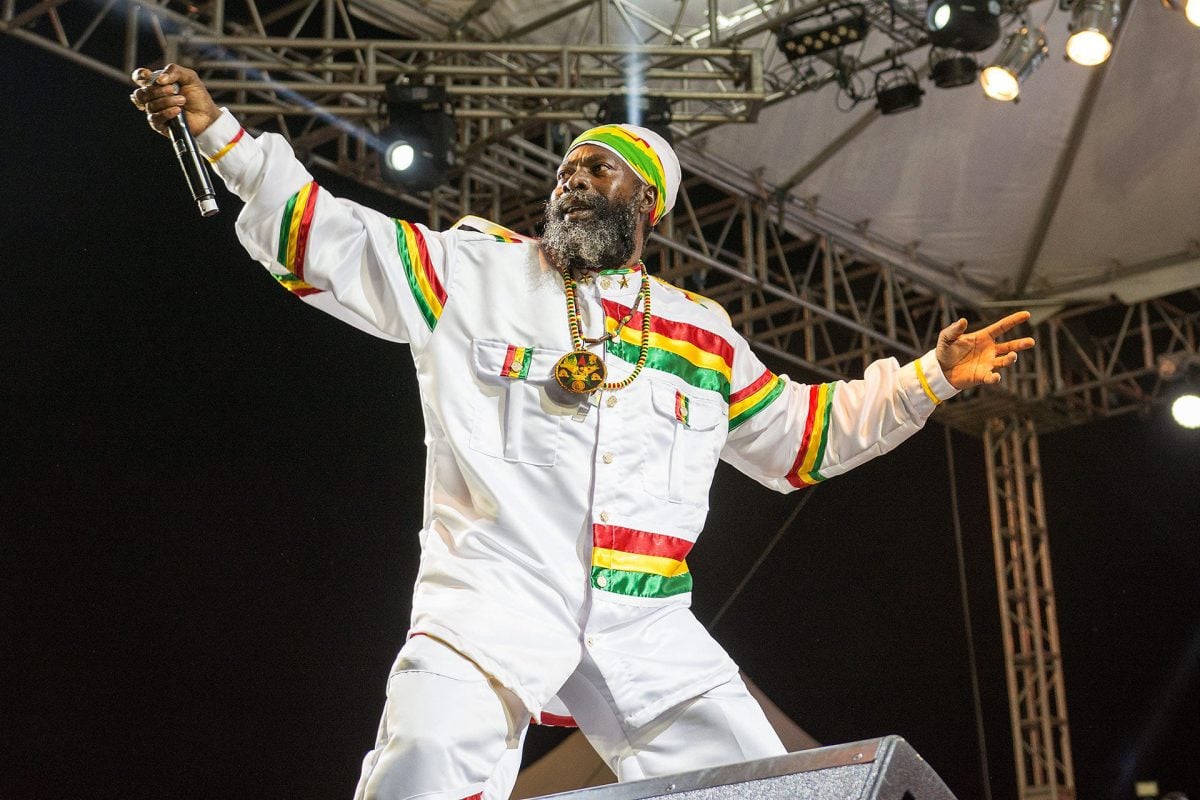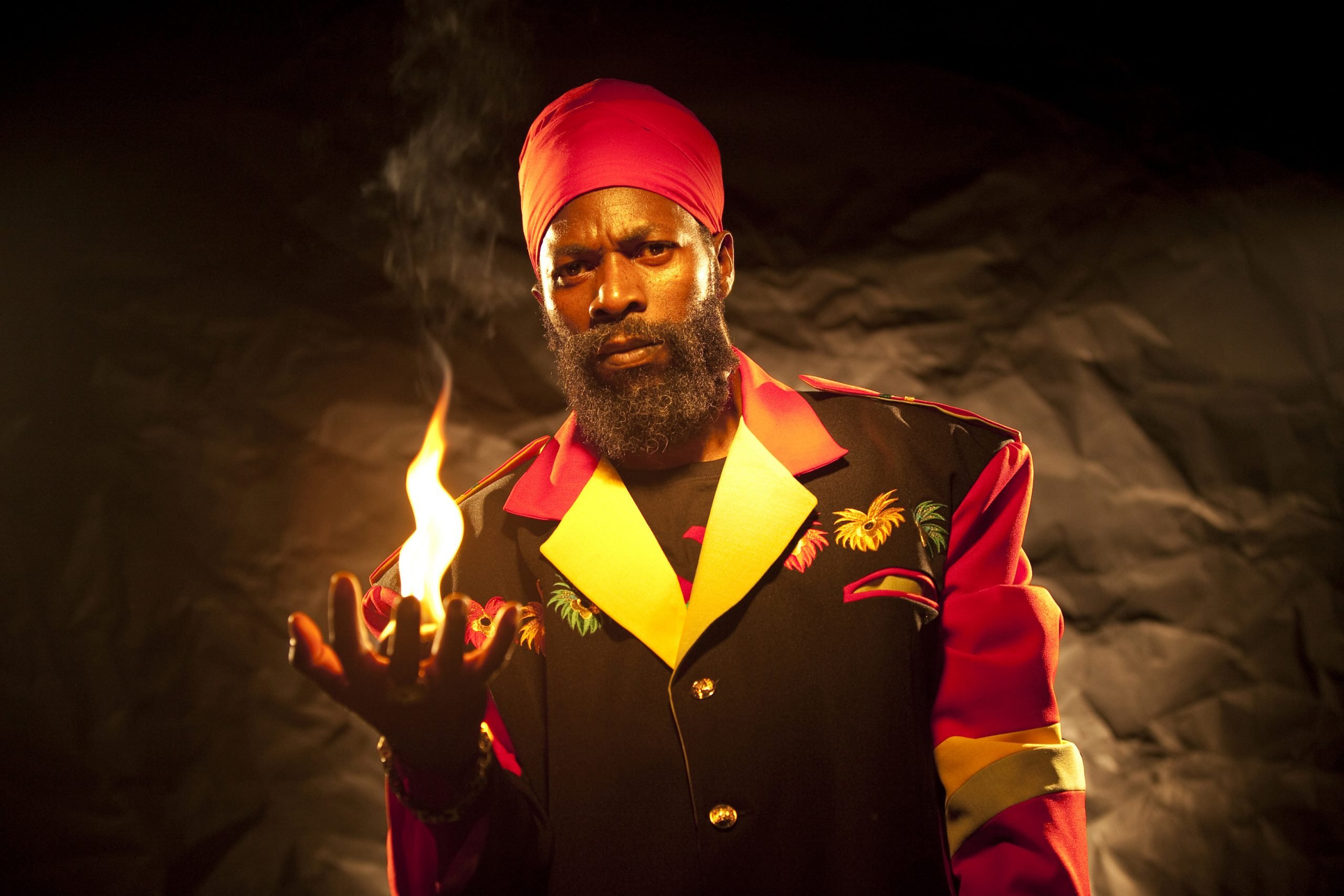Capleton Calls For Authenticity, Says Trap Dancehall Songs Cannot Stand The Test Of Time

Veteran Dancehall deejay Capleton, says the Dancehall-infused Trap beats, to which many upcoming Jamaican artistes are gravitating, are already failing the test of time.
The St. Mary native was responding to questions posed by veteran entertainment journalist, Anthony Miller during the Entertainment Report television programme which was aired on Friday night.
The Billboard-charting deejay, whose given name is Clifton Bailey, said because even the lyrics of the top Trap songs tend to be superficial, they are easily forgotten, in stark contrast to their authentic Reggae and Dancehall counterparts.
“You can find a two-months hit or a three-months hit, or a six-months hit, but nobaddy nuh waa hear it again. All the next hundred years, that’s why Bob Marley and Burning Spear and all a di ancient one dem song today still relevant because dem have substance. Dem song is real; it is authentic,” Capleton explained.
In expounding on the lack of authenticity, the Critics artiste, who also goes by the name King Shango, said this was partially due to the fact that computer technology has made it extremely easy to voice songs without even entering a music recording studio.
“They are coming with a different energy. Di youth dem a Trap and dem a duh some different suppm, yuh understand weh mi a seh? Cause it easy fi a man voice a song… a man can use a finger an voice a song. A man can voice inna him bathroom. A man have him social media; it is so easy now. A man can go just duh anything and …but at di end a day it not authentic. A authentic ting wi a deal wid,” the artiste said.
In probing further, Miller asked the Raggy Road singer whether he regards the Trap sounds coming out of Jamaica as Dancehall. However, the 53-year-old did not give a direct response on how he felt about the matter.
“Is it Dancehall?” he said, repeating Miller’s question. “They call it Trap and they call it some odda tings.”
Asked whether there was a future for the music being put out on Trap beats, Capleton said even though he was not against artistes voicing their music on those types of sounds, the prospects of longevity was nil.
“There couldn’t be a future. And anuh like wi a lick out gainst di yute dem or nuttn, caw di yute dem haffi eat dem food same way. Dem haffi survive; dem haffi duh dem ting, an space a gu deh-deh fi it,” he explained.

“That’s how Dancehall is. But dat don’t mean seh wi a guh yield to dat or wi a guh stoop to it… mi naw tell a man seh yuh caan defend yuhself, an yuh can deejay bout yuh gun or yuh whatever. Wi naw tell a man seh nuh deejay bout woman; wi love woman an wi love when di girl dem happy and when dem a wine an a bubble an a duh dem suppm. But at di end a di day, di positive side a di music, yuh mus always keep a keen focus on dat part,” he added.
This is not the first time Capleton has cautioned that positive lyrics will reign predominant over superficial ones.
Speaking on Onstage last year, he also encouraged young artistes to engage in creating constructive lyrics, arguing that the positive aspects of the Dancehall music genre will always be predominant. He said because these songs have longevity and are always be in demand by the global audience, they have enabled artistes like himself, to garner copious numbers international bookings and amass great wealth.
From Capleton’s experience, he should know about the effect of positive lyrics versus gimmickry, as his greatest international successes in Dancehall have come from his conscious albums and songs, as opposed to the songs about sex and guns.
The tracks Tour and Wings of the Morning from his fifth studio album titled Prophesy peaked at number 57 and 79 on Billboard’s Hot 100 in November 1995. These songs earned him a deal with Russell Simmons’ Def Jam Recordings which culminated in the Prophecy and I-Testament albums which were released in the mid-1990s.
His Still Blazin album was nominated under the Best Reggae Album Grammy in 2002 and featured songs such as Cooyah Cooyah , Red, Red, Red , Caan Tan Yah , and Hail King Selassie .
These songs were in stark contrast to others Capleton voiced when he first arrived the Dancehall scene, such as the Fatis Burrell-produced Bumbo Red in 1990 and Gun Talk and Long John on his Gold album which was released in 1991.
Watch the full interview below.
